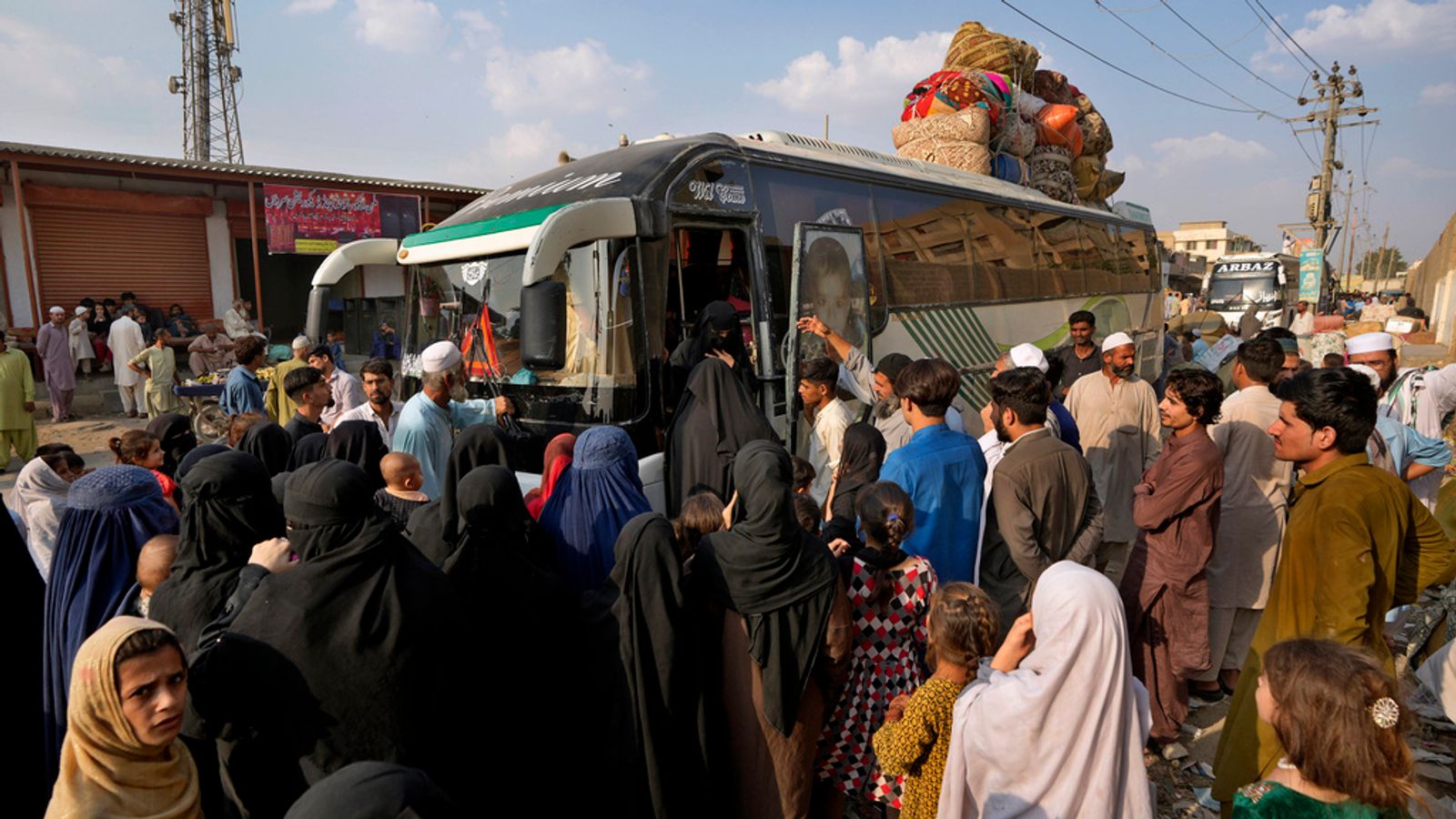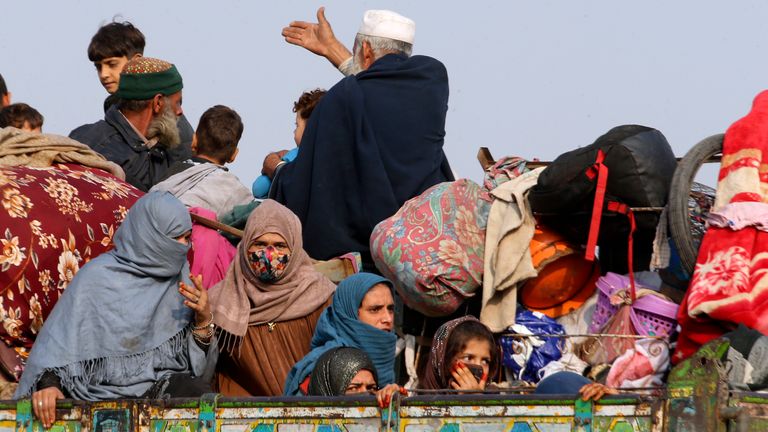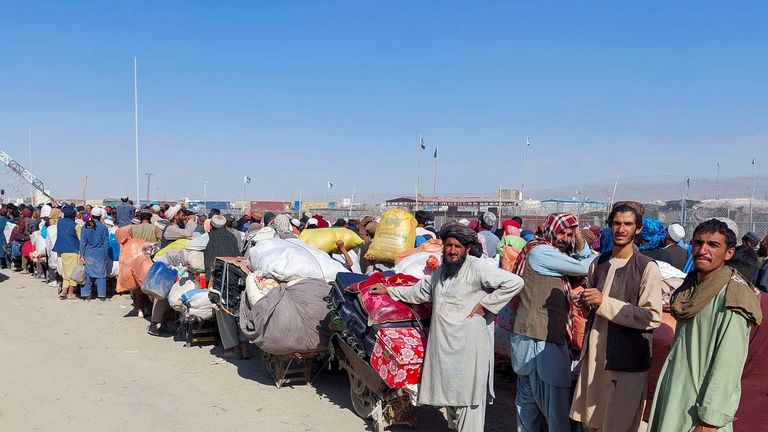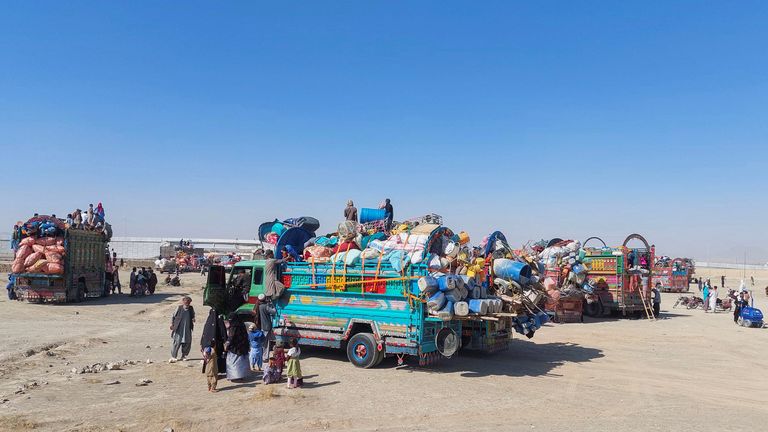Pakistan is set to begin its push to force out 1.7 million migrants – many of them Afghans who fled the Taliban – despite criticism from human rights groups.
Thousands of Afghans living in Pakistan rushed to the border in trucks and buses ahead of the government’s Wednesday deadline for undocumented or unregistered foreign nationals to leave the country.
The anti-migrant policy was announced last month by Pakistan’s caretaker government, which has threatened to round-up, detain and deport those who do not leave voluntarily.
Islamabad has blamed Afghan migrants for a rise in armed attacks, mainly in northwestern Khyber Pakhtunkhwa and southwestern Balochistan provinces bordering Afghanistan.
The government has also accused Kabul of turning a blind eye to Taliban-allied militants who find shelter in Afghanistan, from where they go back and forth across the two countries’ shared 1,600-mile border to stage attacks in Pakistan – an accusation the Taliban have denied.
However, the move to expel migrants has been strongly criticised by UN agencies and human rights groups, as well as the Taliban-led administration in Afghanistan.
The government says more than four million foreign nationals live in Pakistan – the vast majority of them Afghans who sought refuge over the last four decades.
Of those, as many as 600,000 to 800,000 migrated in or after the Taliban regained power in 2021, according to Pakistan’s interior ministry.
It claims there are around 1.7 million undocumented migrants in Pakistan – and all have been told to leave the country by 1 November.
Read more:
Pakistan’s former PM charged in Official Secrets Act case
Imran Khan’s fight for innocence could keep him off campaign trail
The operation would be “lengthy and gradual”, Sarfraz Bugti, Pakistan’s caretaker interior minister, said in a video statement released on Tuesday. He gave no further detail on the time frame.
Mr Bugti denied refugees were being deported and said: “Only those who are completely illegal will leave Pakistan.”
However, the UN refugee agency in Pakistan urged the government to protect those at risk from persecution.
“We are asking the government to come up with a comprehensive system and… mechanism to manage and register people at immediate risk of persecution if forced to return,” Qaiser Khan Afridi, a spokesperson for the agency, told Reuters news agency.
“They cannot return, they can’t go back to Afghanistan because their freedom or their life might be at risk.”
More than 200,000 Afghans have returned home since the policy was announced, according to Pakistan’s government, while the Taliban say around 60,000 Afghan nationals have crossed the border.
More have headed there today ahead of the deadline, among them Mohammad Amin, who said his father came to Pakistan 40 years ago.
“He died here. My mother also died here and their graves are in Pakistan,” said Mr Amin, originally from Afghanistan’s eastern Nangarhar province.
“We are going back today as we never tried to register ourselves as refugees with the UN refugee agency,” the 52-year-old said.
Another Afghan national who was born in Pakistan and married a Pakistani woman and raised his Pakistan-born children in Karachi, but has no Pakistani documents, said he and his family are also heading across the border.
“We’d live here our whole life if they didn’t send us back,” said the 35-year-old.
This story originally appeared on Skynews




